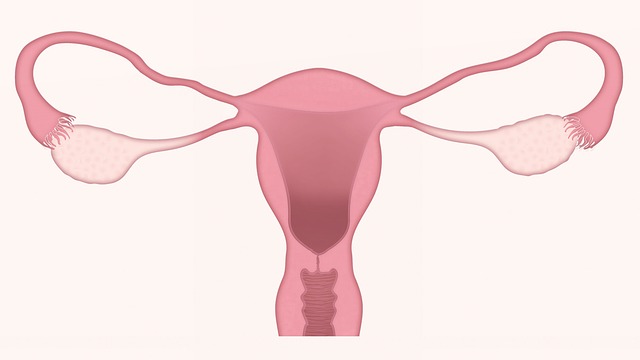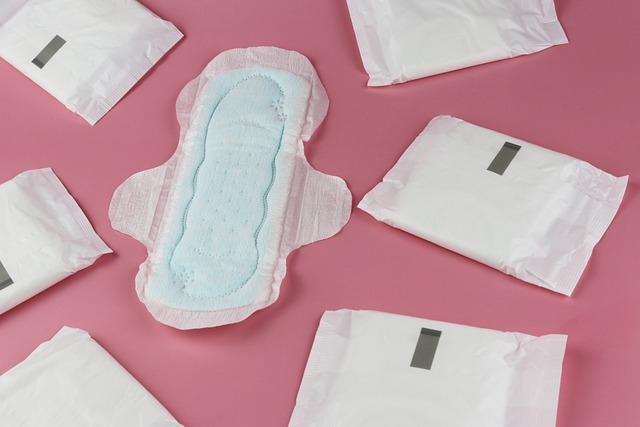What is the best diet for a menopausal woman? Can diet affect menopause symptoms? Can you lose weight during menopause?
When talking about women's health, you cannot ignore menopause. Many women fear menopause because of an array of problems associated with it. True, when your estrogen levels decrease in menopause, there might be an increase in your body temperature and weight.
Before talking about the menopause diet, let's see what MENOPAUSE is.
Menopause is a stage that every woman passes through when she crosses 50 years of age. This is the period when your menstrual cycle stops completely or you do not have periods for 12 months at a stretch.
So does menopause happen suddenly?
Well, you might first pass through Perimenopause before menopause strikes. This is the period shortly before menopause. In some cases, perimenopause can begin in the 40s and sometimes in the 30s. For some women, it could be as late as the mid-50s.
When perimenopause happens, you can start experiencing mood swings, hot flashes, fatigue, and low energy. Since hormone levels, especially estrogen, fall, it can start to produce many hormonal changes in your body. The decrease of hormones might have an effect on your activity levels, strength, muscle mass, bones, and metabolism.
Menopause is a reality for all women. If you are young, you will experience menopause sometime in your life at a later stage (between 45 and 55 years). One fact that not everyone knows is that menopause has a maternal connection. That means your menopause depends on when your mother, her sister, and your sister experienced menopause.
This is a phase in life when the hormones fluctuate and fall below normal as you age. According to Ludhiana-based gynecologist Dr. Mandeep Kaur, a baby girl is born with a number of eggs in her uterus that start to function at the age of 14 years.
There is no more egg formation when a woman reaches the age of 45-55 years. That's when you stop menstruating and you are no longer reproductive.
So what are the symptoms of menopause:
- Hot flashes and excessive sweating: This is a condition in which a woman might experience intense sweating even in chilling conditions. This might happen even when she is sitting in an air-conditioned room. The body loses its heat and feels cold. According to Dr. Mandeep, this symptom is common among women, and 75% of women experience hot flashes during peri-menopause.
- Abdominal discomfort/pain/gas: These are common signs during the perimenopausal phase of a woman. But this is a common symptom for several conditions.
- Skin dryness: The fall in estrogen levels may make the skin dry, patchy, and itchy. This also results in other signs of skin aging, including wrinkles.
- Missed period or frequent period: A woman might experience period problems, including heavy bleeding or missed period. This might be abrupt in some women while others might experience this phase gradually and a complete stop in menstrual cycles over a period of time.
What happens during menopause?
When your period stops, that means your hormonal levels have reduced considerably. In that case, you are more prone to bone health problems, including osteoporosis, risk of fracture, headache, migraine, joint pains, tiredness, fatigue, and pain in extremities.
The frequency of urine might increase. This happens due to vaginal dryness. Pain during sexual intercourse is also a symptom of dryness of the vagina. A woman might gain weight and sleeplessness.
Decreased concentration is common for a menopausal woman.
How to manage menopause
Eat more Phytoestrogens - jau atta (barley), soya products, orange, broken wheat, apples, papaya, one glass of milk for calcium, keep hydrated, yoga, breathing exercises, and muscle strengthening exercises.
Reduce fat, sugar, and carbs for better menopause management."
So how to fight menopause symptoms? Or in other words, how to prepare for menopause?
Now you might come across many fad diets that claim to do wonders for menopause. But you should not push your body too hard with extreme diets. Fad diets do your body no good.
Instead, think sustainable! You want to practice a lifestyle that you can continue for a long term.
You do not want to start with a diet that you cannot sustain on a long-term basis.
Now your focus is to find something that fits your lifestyle. True, find foods that are local and that you enjoy eating. You want to maintain a healthy weight and overcome signs of emotional stress. Practice a healthy lifestyle that brings you closer to nature.
Here's what Ludhiana-based gynecologist Dr. Mandeep Kaur has to say about menopause.
So now coming back to the question on menopause diet. What should be the diet for menopause include? What is the best diet for a menopausal woman? Can diet affect menopause symptoms? Can you lose weight during menopause? What vitamin is good for hot flashes? At what age do hot flashes usually stop?
At what age do hot flashes usually stop?
A woman might continue to experience hot flashes even after they turn 70 years.
Does vitamin D reduce hot flashes?
Vitamin D helps maintain serotonin levels. Serotonin helps regulate the body temperature, which means the sunshine vitamin might help reduce hot flashes and night sweats and keep you from mood swings. Australian research finds that many women experiencing hot flashes are found to be deficient in vitamin D.
Does magnesium help with hot flashes?
Magnesium might help reduce bothersome hot flashes. Research claims that cancer patients and those undergoing chemotherapy experiencing hot flashes can benefit from oral magnesium therapy.
High sugar
High starch
Spicy foods
Caffeine
Alcoholic beverages
What fruit is good for hot flashes?
Bananas, apples, spinach, broccoli, papaya, green tea are some of the cooling food, which helps cool you down. Eggs are also good for hot flashes.
How to stop hot flashes?
Conclusions of a research study: "Our results suggest that acupuncture in addition to usual care is associated with marked clinical improvement in hot flashes and menopause-related symptoms in perimenopausal or postmenopausal women."
Can you lose weight during menopause?
If your estrogen comes down, metabolism slows down. As a result, digestion slows and you tend to gain weight.
Calcium
No doubt, you are aging and your body needs a good dose of calcium from now onward. After 40 years, your body's production of calcium reduces. This is the time to focus on a calcium-rich diet. Aim for no more than 1,500-1,800 mg of calcium per day.
What are the best calcium sources that are easy to sustain?
- Milk
- Soy
- Dairy products
- Oatmeal
- Spinach, turnip, and similar greens
- Vegetables
- Orange
If you are already experiencing hot flashes, it might be a good idea to include:
cruciferous veggies, such as cabbage, cauliflower, Brussels sprouts, kale, among others
Protein (Lean protein)
Protein is the building block of bones. Your menopause diet should have a place for lean protein. It might be a good idea to include lentils, legumes, and beans in your vegan/ vegetarian diet for menopause. If you are a non-veg eater, you may choose grilled chicken, turkey, or tuna. For a menopause diet Indian, milk protein, and soy protein are good substitutes.
Be extra careful about including red meat in your diet and watch your cholesterol levels closely. You may have it once in a while so you do not feel starved for your favorite meat products.
You may try to :
- Include fig and walnut when you wake up
- Never skip breakfast
- Miillets at lunch (sorghum, pearl millet, water chestnut, and finger millet)
- Include cashew
- Enjoy simple dal roti
Symptoms of Low estrogen
- Dry skin.
- concentration problems
- Weak bones
- breasts feel tender
- irritability
- night sweats
- hot flashes
- Vaginal dryness
- Hot flashes and night sweats.
- Irregular periods or no periods


Comments
Post a Comment